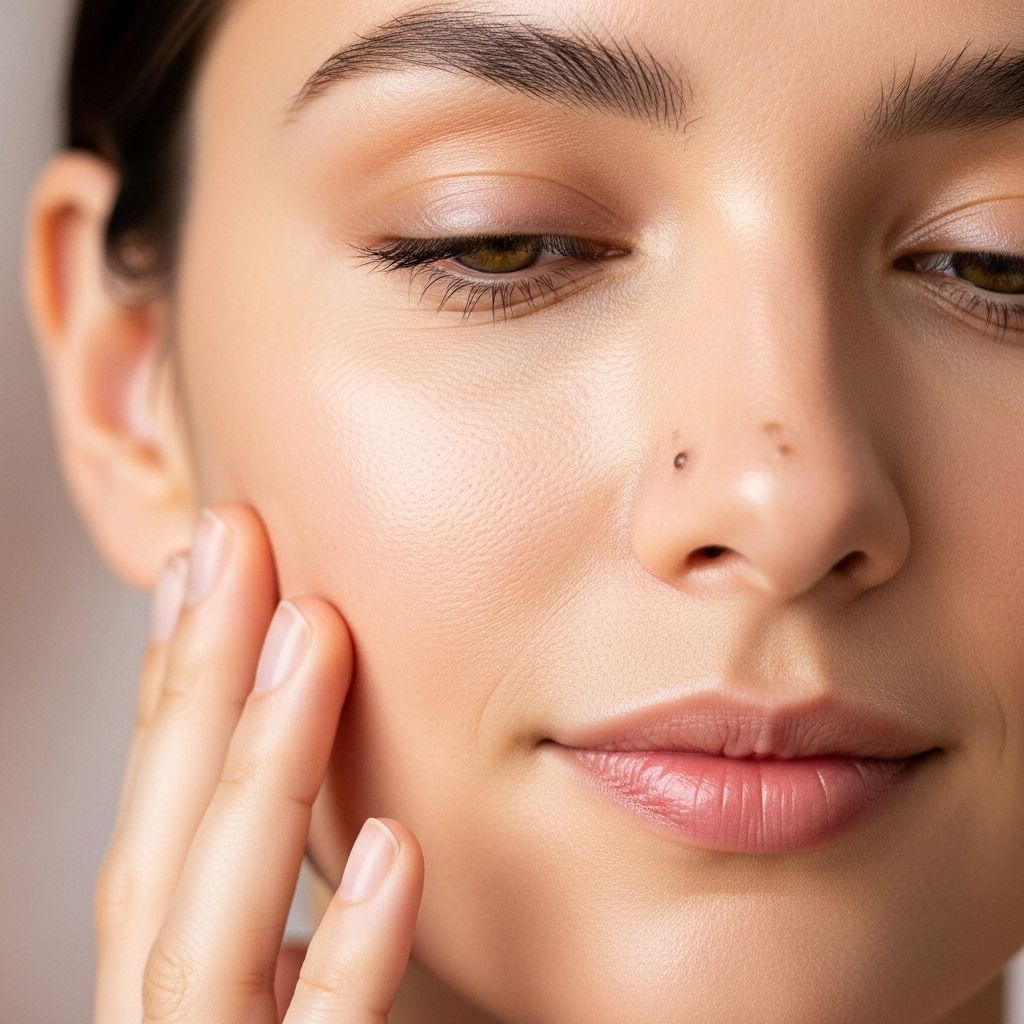Stress and Blackheads: Uncovering the Cortisol Connection
Daily wellness rituals can soothe your mind and help restore a fresh, healthy complexion.

Introduction to Stress and Skin Health
Stress is an inevitable part of modern life, affecting not just mental well-being but also physical health, particularly skin health. The body’s response to stress involves the release of hormones like cortisol, which can have a significant impact on the skin. This article delves into the connection between stress, cortisol, and blackheads, exploring how stress exacerbates skin issues and discussing strategies for managing stress to improve skin health.
Stress and Cortisol: The Biological Connection
When the body perceives stress, whether physical or emotional, it activates the hypothalamic-pituitary-adrenal (HPA) axis, leading to the release of cortisol. Cortisol is often referred to as the “stress hormone” because it plays a crucial role in the body’s response to stress. In small doses, cortisol is beneficial, helping the body to cope with immediate threats. However, prolonged exposure to cortisol due to chronic stress can have detrimental effects on various bodily systems, including skin health.
Cortisol’s Impact on Skin Health
Cortisol has several effects on the skin:
- Increased Oil Production: Cortisol triggers the sebaceous glands to produce more sebum (oil), which can lead to clogged pores and breakouts, including blackheads. The increased oil production creates an ideal environment for acne-causing bacteria to thrive, exacerbating skin conditions like acne, rosacea, and eczema.
- Inflammation: Chronic stress leads to low-grade inflammation, a condition that can impair the healing of existing breakouts and flare up conditions like psoriasis and rosacea. Inflammation also accelerates the aging process by reducing collagen production, leading to wrinkles and a less elastic skin.
- Impaired Skin Barrier: Stress can weaken the skin’s natural barrier, making it more susceptible to environmental stressors like UV rays and pollution. This can result in dryness, sensitivity, and premature aging.
- Delayed Healing: Stress can slow down the skin’s repair processes, affecting the healing of cuts, blemishes, and irritations.
Blackheads and Stress
Blackheads are a type of non-inflammatory acne lesion that occurs when pores become clogged with sebum, dead skin cells, and other debris. Stress, through cortisol, can exacerbate blackheads by increasing oil production and inflammation, making pores more prone to clogging.
How Stress Affects Blackheads
The connection between stress and blackheads is multifaceted:
- Oil Production: As mentioned, cortisol stimulates the sebaceous glands, leading to increased oil production. This excess oil can clog pores, contributing to the formation of blackheads.
- Stress-Induced Inflammation: While blackheads are non-inflammatory, the stress-induced inflammation can worsen the condition by increasing redness and irritation around the affected area.
- Poor Skin Hygiene Due to Stress: Stress can also lead to poor sleep and dietary habits, which may affect skin hygiene and skincare routines, further exacerbating blackheads.
Managing Stress for Better Skin Health
Given the impact of stress and cortisol on skin health, managing stress is crucial for improving and maintaining healthy skin. Here are several strategies to reduce stress and its effects on the skin:
- Exercise and Physical Activity: Regular exercise can help reduce stress levels by releasing endorphins, which are natural mood boosters. Physical activity can also improve circulation, which is beneficial for skin health.
- Mindfulness and Meditation: Practices like mindfulness and meditation have been shown to reduce stress by promoting relaxation and calming the mind.
- Sleep and Nutrition: Adequate sleep and a balanced diet rich in fruits, vegetables, and omega-3 fatty acids are essential for maintaining healthy skin. Poor sleep and diet can exacerbate stress effects on the skin.
- Skincare Routine: A consistent skincare routine that includes gentle cleansing, exfoliation, and moisturizing can help manage blackheads and other skin conditions exacerbated by stress.
Frequently Asked Questions
Q: Can stress cause blackheads?
A: Yes, stress can contribute to the formation of blackheads by increasing oil production, inflammation, and impairing skin health.
Q: How does cortisol affect skin?
A: Cortisol, the stress hormone, affects skin by increasing oil production, leading to inflammation, impairing skin barrier function, and slowing down skin repair processes.
Q: What are some effective ways to reduce stress for better skin?
A: Effective ways to reduce stress include regular exercise, mindfulness practices, ensuring good sleep, maintaining a balanced diet, and following a consistent skincare routine.
Conclusion
In conclusion, stress and cortisol have a significant impact on skin health, including the formation and exacerbation of blackheads. Understanding this connection is essential for devising effective strategies to manage stress and improve skin health. By adopting healthy lifestyle habits and reducing stress, individuals can mitigate the negative effects of cortisol on their skin.
References
- https://www.westlakedermatology.com/blog/how-stress-is-damaging-your-skin/
- https://www.naturalacneclinic.com/blog/stress-breakouts-hidden-connections/
- https://healthcare.utah.edu/healthfeed/2024/01/stressed-out-skin-link-between-stress-and-skin-health
- https://www.hazanyderm.com/the-connection-between-stress-and-skina49ade06
- https://pmc.ncbi.nlm.nih.gov/articles/PMC5722010/
- https://www.ucihealth.org/blog/2024/08/cortisol-face
- https://www.rupahealth.com/post/the-connection-between-stress-and-acne
- https://pmc.ncbi.nlm.nih.gov/articles/PMC9777314/
- https://mooresvilledermcenter.com/stress-affects-skin-acne-eczema/
Read full bio of Sneha Tete












